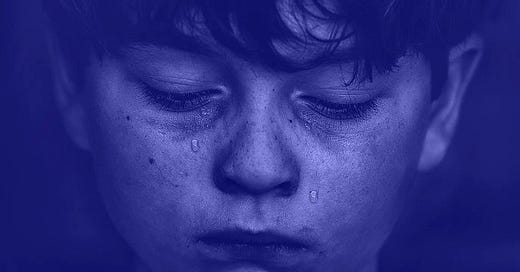It’s important to recognize that those who are marginalized are often the ones who carry essential wisdom. Those in the remnant carry the mostly hidden truth forward despite—or probably because of—their rejected or marginal status. [1] This has been true throughout history. The voices of those excluded or overlooked often reveal insights that remain hidden from those who live in privilege and comfort (1 Corinthians 1:27-28). Their experience, born out of suffering and rejection, becomes a source of clarity. While the world tends to dismiss these individuals, their perspective is invaluable because they have learned to see beyond the illusions of status and power. They are not burdened by the need to maintain appearances or protect their social standing, and that freedom often allows them to speak the truth with courage and authenticity. We are wise to pay attention to those voices, for they often bear a wisdom that the comfortable and secure cannot grasp.
Unfortunately, much of what passes for spiritual teaching has been distorted by its association with power and dominance. The Bible was not supposed to be used to idealize ego and empire, as most humans throughout history have tried to do. [1] Yet time and again, religious texts have been misused to justify systems of control, nationalism, or personal gain (Jeremiah 7:4-7). This distortion leads people away from the heart of spiritual wisdom. The sacred was never meant to serve the ambitions of empire. Instead, true spiritual teaching calls us to humility, to compassion, and to justice (Micah 6:8). When faith is co-opted by power, it becomes an agent of exclusion rather than liberation. The call of the spiritual life is not to protect one’s ego or secure one’s position, but to empty oneself in love for others (Philippians 2:3-5).
And yet, most of the time we find ourselves drawn to what feels comfortable and safe. Most of the time we find ourselves happily on the side of the successful, of ego and ill-gotten comfort, rather than the side of truth and justice. [1] It’s easy to align with those who have power and privilege because it offers a sense of security. But this alignment often comes at the cost of our integrity (Mark 8:36). Truth and justice are rarely found in the places of comfort and ease. They are more often discovered among those who suffer, those who stand on the margins, those who refuse to accept the lies that protect the powerful (Luke 6:20-26). The path of spiritual growth invites us to step away from false comfort and toward the difficult but necessary work of seeking what is real and true.
In our search for truth, one of the greatest obstacles is our tendency to blame others. In our time, someone else must always be the problem, especially the other race or the other political party, even when the fault line is clearly running through our own country, group, ethnicity, or gender. [1] We want to believe that the cause of our struggles lies outside ourselves. It’s easier to point fingers at those who seem different from us than to confront the ways we contribute to division and harm (Matthew 7:3-5). But this constant scapegoating prevents us from seeing our own failings. Real growth begins when we recognize that the line between good and evil runs through every human heart, including our own (Romans 3:23). Until we face this truth, we will remain trapped in cycles of blame and hostility.
The wisdom of the Hebrew prophets offers us a better way. The Hebrew prophets critique their own group first, and only then does that give them enough clarity to properly critique others. [1] This pattern is crucial. Prophets were not self-righteous judges hurling accusations at others—they began by examining their own people, their own culture, and their own failings (Ezekiel 3:17-21). Only after they confronted those truths were they able to speak with clarity and authority about the world around them. This model invites us to resist the temptation to critique others without first examining ourselves (Isaiah 58:1-9). The path to genuine insight begins with humility, self-reflection, and a willingness to confront our own mistakes.
At the heart of all this is a simple but crucial truth: our greatest spiritual failing is a loss of connection to the Divine. The people’s fault, their core mistake, is that 'they do not know Yahweh.' [1] This is not merely a failure of belief or doctrine—it is a failure to experience the living presence of love and wisdom that animates all life (Jeremiah 9:23-24). When we lose this awareness, we fall into fear, selfishness, and control. We become disconnected from what truly matters, and our lives are shaped by anxiety rather than trust (Isaiah 26:3). To know the Divine is to root ourselves in a love that is deeper than our fears, a love that holds us even when life feels uncertain. That awareness changes everything.
This love is the center of spiritual life. God’s unconditional love is the hallmark, the ideal, and the model for all human behavior—reaching its epitome in the teaching of Jesus. [1] This love is not conditional on worthiness, performance, or belief (Romans 5:8). It is a love that embraces the weak, the wounded, and the wandering (Luke 15:1-7). It is a love that refuses to draw lines between insiders and outsiders (Galatians 3:28). When we allow this kind of love to shape our lives, we begin to reflect the Divine in our relationships and actions. Love becomes the lens through which we see ourselves, our neighbors, and the world (1 John 4:7-8). And it is this love that offers hope for healing—not only for individuals, but for communities and for the world itself (John 13:34-35).
[1] Richard Rohr, The Tears of Things




